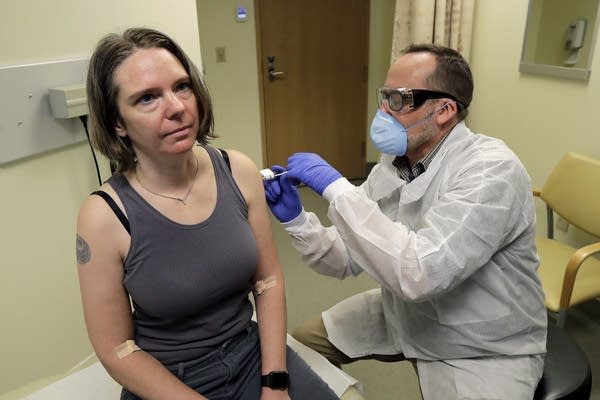Vaccines are on the horizon. Will the public accept them?

Go Deeper.
Create an account or log in to save stories.
Like this?
Thanks for liking this story! We have added it to a list of your favorite stories.
After months of mask-wearing, social-distancing and general COVID-fatigue, a vaccine for the coronavirus is on the horizon. According to one tracker, 11 vaccines are in the final testing phase to determine safety and efficacy.
But developing the vaccine is just one finish line. The next step is to mass produce and distribute the vaccine.
To achieve herd immunity, at least 70 percent of the public must get vaccinated, which could be a challenge. The Pew Research Center found the percentage of U.S. adults who would get a COVID-19 vaccine dropped from 72 percent in May to 51 percent in September.
In some communities of color where the virus is having a disproportionate effect, some are skeptical about volunteering for vaccine trials or being first in line for a new vaccine. So what’s the best way to proceed?
Monday at 9 a.m., MPR News host Kerri Miller spoke with two experts about the science and the art of educating the public about the much-hoped-for vaccine.
Guests:
Angela Rasmussen is a virologist and associate research scientist at Columbia University’s Mailman School of Public Health.
Thomas LaVeist is a professor and dean at Tulane University’s School of Public Health and Tropical Medicine. He also serves as the co-chair of Louisiana’s COVID-19 Health Equity Task Force.
Subscribe to the MPR News with Kerri Miller podcast on: Apple Podcasts, Google Podcasts, Spotify or RSS
Turn Up Your Support
MPR News helps you turn down the noise and build shared understanding. Turn up your support for this public resource and keep trusted journalism accessible to all.
Dear reader,
Political debates with family or friends can get heated. But what if there was a way to handle them better?
You can learn how to have civil political conversations with our new e-book!
Download our free e-book, Talking Sense: Have Hard Political Conversations, Better, and learn how to talk without the tension.



